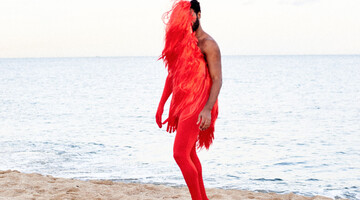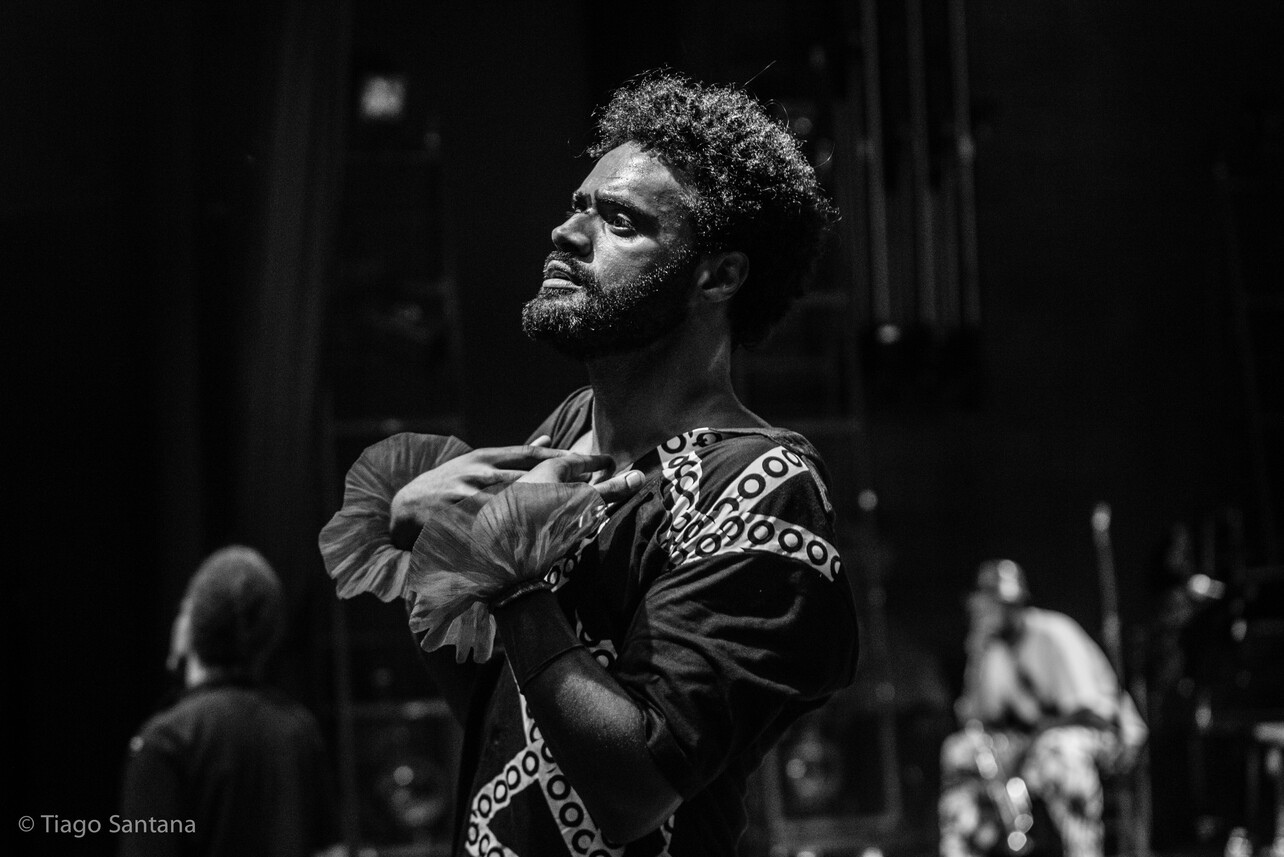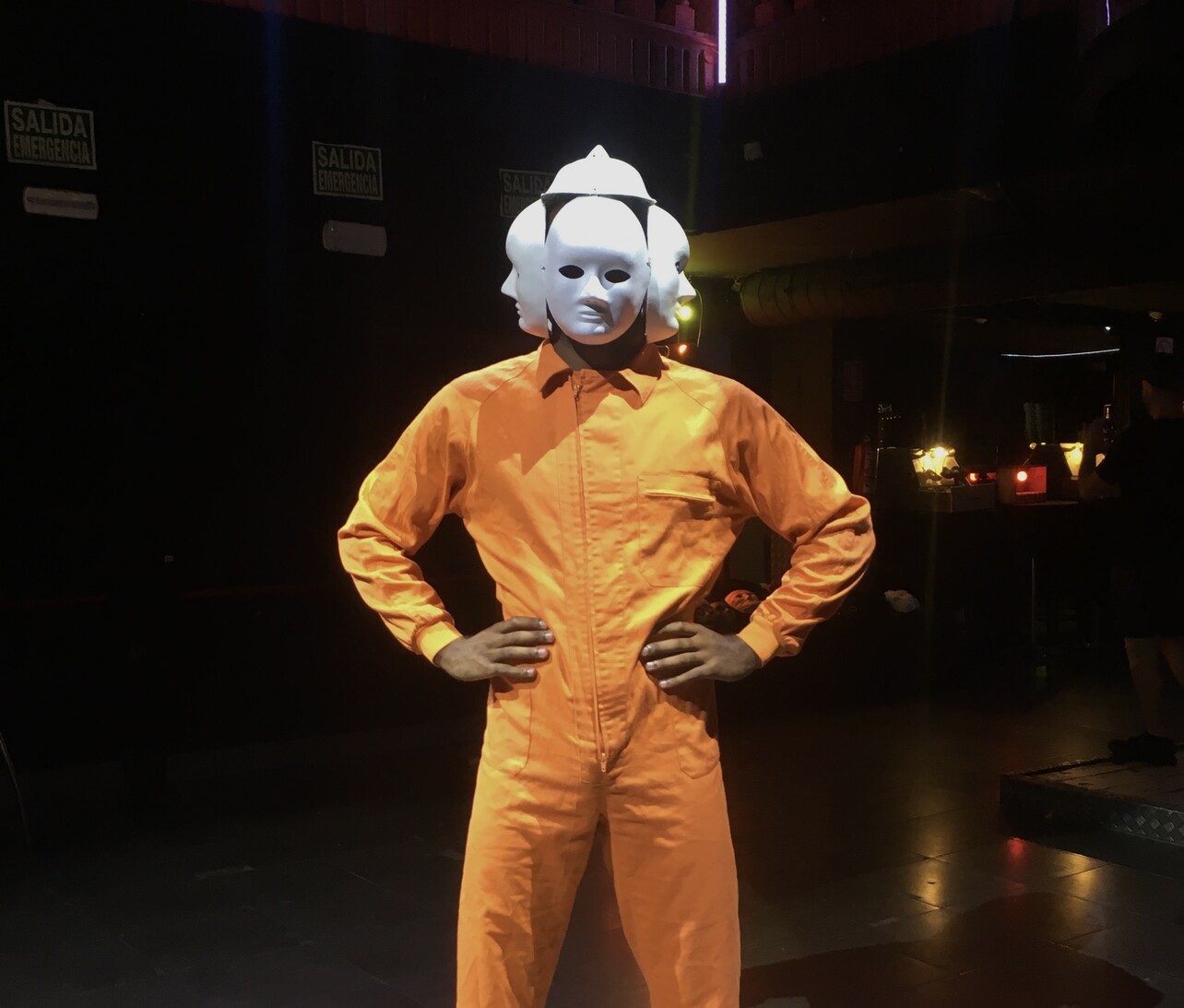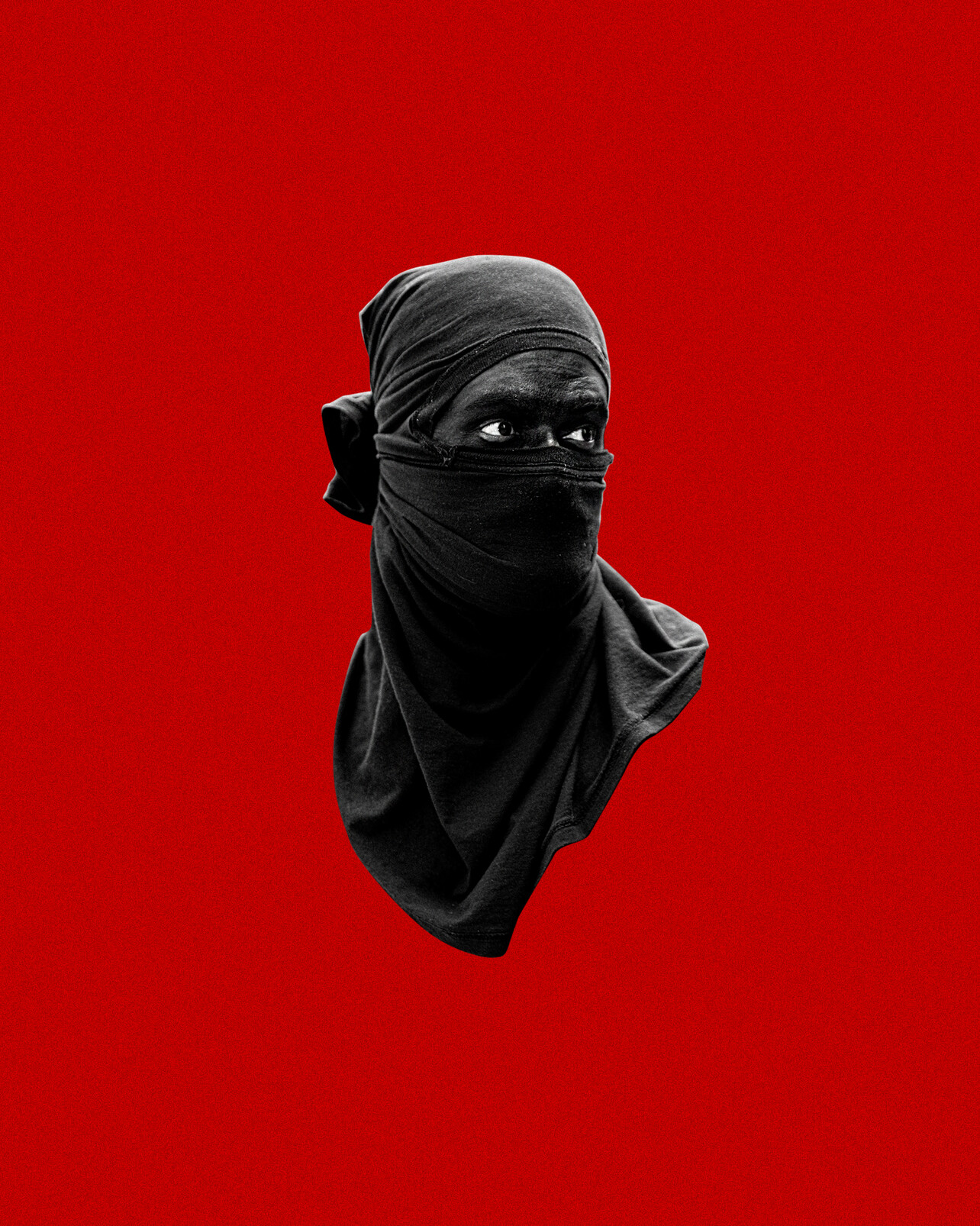
VIENNA ART WEEK: Interview with Artist-in-Residence Luiz Felipe Lucas
Luiz Felipe Lucas is a Brazilian performance artist and actor also working under the pseudonym @cabezadenego. He was invited by curator Bogomir Doringer as Artist-in-Residence to develop a performance for the upcoming exhibition “Space of Urgency” at the frei_raum Q21 exhibition space planned for spring 2021.
Luiz Felipe Lucas is a Brazilian performance artist and actor also working under the pseudonym @cabezadenego. He was invited by curator Bogomir Doringer as Artist-in-Residence to develop a performance for the upcoming exhibition “Space of Urgency” at the frei_raum Q21 exhibition space planned for spring 2021. He is a member of theater companies and has been living in Europe for two years. His work is political and deals with the diaspora of Black, mixed-race and Latino people.
Luiz, can you tell us about your working methods?
I usually work with other people and theater companies, big companies – I finished my studies in Rio and after my graduation I started work in a company and specialized in physical theater using the Grotowksi method.
What is physical theater and what is the Grotowksi method?
Grotowski was a Polish theater director, writer and teacher who developed the concept of “poor” theater, where the actor is at the heart of the theatrical experience – not sound, light effects, stage design or costumes. The relationship between the actor and the spectator was the most important thing in his concept. His training for actors is also mentally and physically challenging – performers have to give themselves up to the performance in order to create truth.
How long did you stay in this company and what did you do afterwards?
I stayed there for about two years and after that I started working with the Marina Abramovic Institute (MAI) in Brazil. I stayed with her exhibition TERRA COMMUNAL and in the hard process with Marina Abramovic I started working in long-duration performances.
What was the exhibition and what was your role there?
I participated in a work method that Marina created – she selected a group of people to do this process with the public. She developed this method that is part of Cleaning the House, to prepare artists for the performative state, a workshop method where performers for example had to meditate for two days, refraining from eating or speaking or using technological devices. So this process was about meditation, preparing your body for the performance project. In the TERRA COMMUNAL exhibition, she invited the audience to get to know this process and I was one of the people who explained this process to the audience.
And after that what did you do?
After Marina Abramovic I joined Teatro Oficina Uzina Uzona, which is the oldest company in my country and there I came to understand a lot about the performance body, not only on stage but in life as a whole. Teatro Oficina is a super-old company in Brazil but they still managed to update as a vanguard theater. I stayed there for two years and learnt a lot about theater and performance and after this whole process I started my own company “Legítima Defesa” with the Black artist community in São Paulo and started my political reflection in my whole work. Then I moved to Europe and began my solo work, because I felt alone and started thinking about my personal condition and wanted to integrate these things into my work.
Where do you do your performances?
I moved to Barcelona but I work with performers all over Europe – in Italy and Germany, Berlin, Brussels and in Spain and Portugal. Now I am here in Vienna. I usually perform in institutions or festivals, exhibitions – it’s like the same with a long residency, I only work to show my performance at the end.
Instagram:
@luizfelipelucas
@cabezadenego
What performances have you done in Europe?
In Europe I started the political reflection about the Black man, the Black faggot walking freely around the world at this time and for me this is a continuous process of diaspora – to me, the diaspora is not just a geographical movement but an internal and external movement.
In Italy I directed two performances with my sister Nêga Lucas, she is also an artist and writer and moved to Europe fifteen years ago. She has written books and poetry, and together with her I developed performances about her poetry.
In Berlin I participated in “48 hours Neukölln” in 2019 with my performances called Embryonic Manifesto. This manifesto is about inviting society to start thinking about this embryonic stage, where the body has not yet developed a gender. The embryonic manifesto is the return of a primitive / primary thought, that is, non-thought, to think the present and reflect the future. We – my friend Luiza Maldanado and me – come with present-day Brazilian Latin-American issues, but they are spreading like viruses all over the world. We developed this manifesto and considered the body before these rules about gender, skin color, blue or pink, male or female, and then we transformed this into the body and a performance, put life into this manifesto.
In Brussels I worked with Marco Torrice – he is a big choreographer who I had first met in Brazil – and then I went to Brussels to collaborate in a project called Melting Pot; it’s about techniques of dancing together, making shapes and forms on stage and in the street together.
And how did your residency in Vienna come about?
Bogomir Doringer invited me. He knows my last performance, The Shot – it’s connected with his work about Dance of Urgency and Space of Urgency. My movement, my performance process and my reflection are connected to his curatorial work and he approached me to develop a performance during the residency in Vienna. For me it’s been interesting to discover new things about my process, and I am here for three months and next year I’ll be back to show my performance. So I want to show my process – I start with a political reflection and create only one action in my performance, which I do for a long time. In the middle of this time I go into a meditative state and connect with my ancestors. At the very moment I get in touch with my ancestors I realize that the person I am now is a dream from my ancestors. Because they lived in the colonial period, they dreamt of freedom and their kid’s freedom and I live in this moment and realize that I am a dream for them, in this process I believe I show this discovery and now in the residency here I start trying to produce presence and absence – like when I arrived in Vienna I only saw white people and then I entered this studio which is literally a white box and these things contaminate my work and I realize Black and Latino people are not there, but I don’t want to talk about why that is. I start talking about absence, and my goal in this residency is to produce absence and presence in my body both at the same time, it’s hard to explain. When I talk about feeling alone, I mean that this process is specifically a process of loneliness too. I always have the opportunity to share my work with someone, now with the pandemic it has become really impossible.
What does “Dance of Urgency” and “Space of Urgency” mean to you?
To me, Dance of Urgency means staying alive, which has become the priority of the world; dance of urgency is when someone – in order to stay alive – needs to move. And Space of Urgency refers to the internal and external spaces, known or unknown and to explore these urgencies.
Will you show a video or perform live?
I don’t know yet. I think it might be both but I still have to talk about it with the curator. I want to do a live performance but it depends, a recorded video is also an option.
I like your eyes. When they are closed they look like you have blue eyes.
Yes, I use paint in my performances as well, and since I am alone here I am trying out new things with body paint. I am used to painting. In my last performance I painted my body on stage, but I am still discovering and keep experimenting with the meaning of colors for a body like mine.


